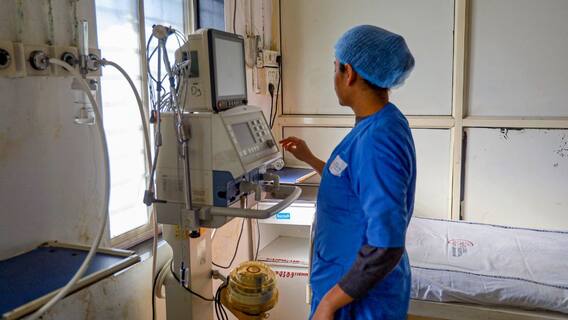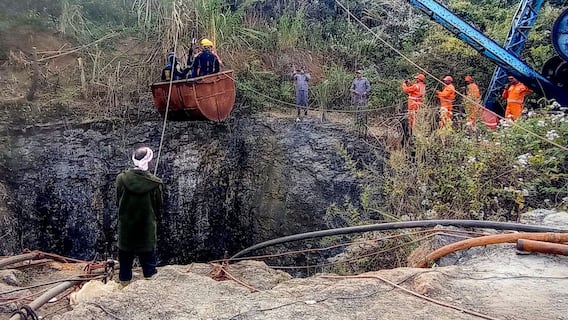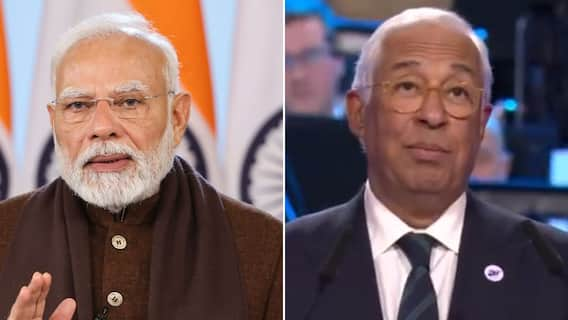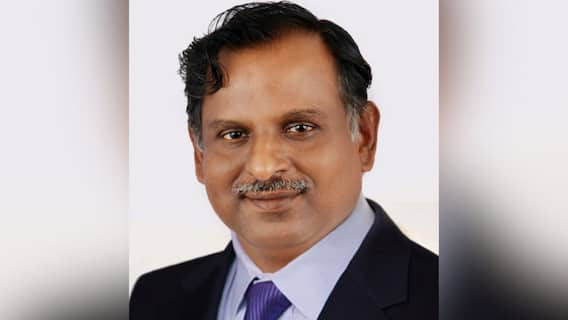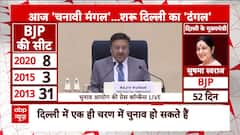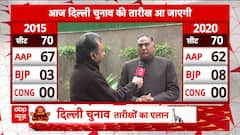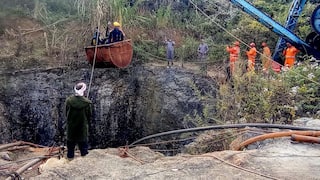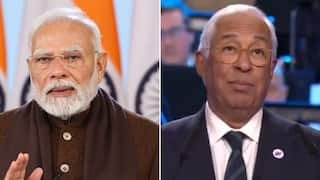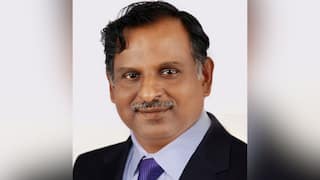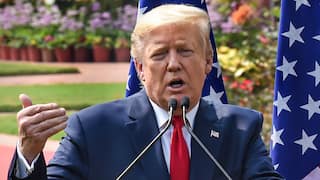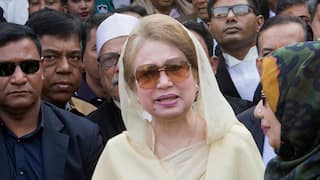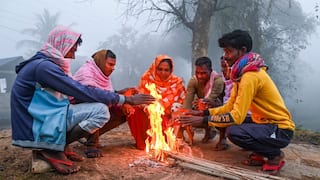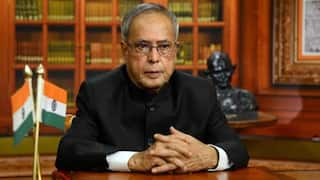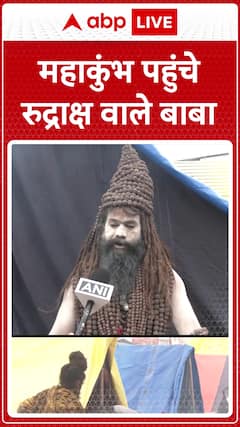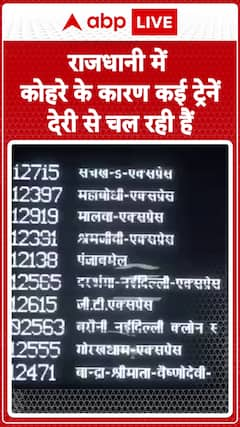Chinese veterans are up in arms

Hong Kong [China], June 26 (ANI): On June 24, hundreds of armed police in China abruptly ended a five-day protest by demobilized soldiers in the city of Zhenjiangin the eastern province of Jiangsu.
More than a thousand well-organized protesters had gathered to complain about the lack of support and welfare they were receiving from the government. Wearing military-style clothing, they waved flags and shouted slogans outside the gate of a government compound. They came from as far afield as Hebei, Henan, Shandong and Sichuan provinces.
They were also angry about other protesters around China being attacked after they also advocated for better treatment by the government. It was reported that local officials in Anhui, Guangdong, Hainan, Henan, Hunan, Liaoning and Sichuan had hired thugs to break up small-scale protests by veterans in recent weeks.
Afterwards, several participants in the mass Jiangsu protest required hospital treatment, while others were arrested. Naturally, the Chinese government attempted to black out news of the protest, both to prevent others from joining it and from news circulating nationwide that all is not well in the workers' utopia.
One protester from Guizhou Province told the South China Morning Post, "We had to make a compromise.but we are still very angry. Assaults on veterans are a public humiliation of China's military, but it's just the tip of the iceberg on the issue."
He added, "We veterans realized that we have to join together to fight for our dignity, because even though the central government set up the Veterans' Ministry several months ago,nothing has been done."
One protester interviewed by Radio Free Asia commented, "Of course they are going to take this road if they are unable to defend their rights and interests," reflecting the veterans' despair that the government will ever do anything substantive to help them.
These protests, and the government's impatient response, are a serious problem in China. The last major mass protest by veterans occurred outside the communist party headquarters in Beijing in October 2016.
The country currently has some 57 million ex-military retirees, including those who fought in the 1950s Korean War and the Vietnam border war of 1979. The number of veterans swelled even further by the axing of 300,000 People's Liberation Army (PLA) positions over recent months since President Xi Jinpingannounced cuts during a large military parade in September 2015. This reduces the PLA to a strength of 2 million.
On 29 November 2017, the PLA posted on WeChat that "over 1,000 navy, air force, rocket force and armed police work units were slashed after reorganization work. Commissioned officerswere reduced by 30%."
In March this year a PLA spokesman said the process of cuts was "basically completed", with the goal having been to achieve it by the end of 2017. The first major army formation to achieve its targeted redundancies was the 81st Group Army of the Central Theater Command, which accomplished this only by the end of February 2018. A PLA report said that "more than 10,000 moved to other stations, thousands were demobilized; and hundreds were assigned to visit the border regions".
In the 1950s the PLA had nearly 6.3 million troops, and eleven major rounds of redundancies have occurred since then. China has an extremely poor record of looking after its soldiers, and perhaps this partially explains the propensity for its ranks to turn to corruption.
Recognising the scale and long-standing nature of the problemof dismissed or retired service personnel, Xi promised to address the issue. He said on 18 October 2017, "We will protect the legitimate rights and interests of military personnel and their families, and make being a serviceman a respected profession in our country." It was the most direct promise given to veterans by any Chinese leader.
One measure was the creation of the Ministry of Veteran Affairs in April. A Ministry of National Defense spokesman stated, "The setup of the new department fully demonstrates the love and care of the Central Party Committee, President Xi and all the Chinese people towards Chinese military officers and soldiers, veterans and their families. All the officers and soldiers of the Chinese military are greatly encouraged."
He gushed, "Veterans are the treasured asset of the party and the country. They are the witnesses, pioneers and builders of the new era. They came from the people and served the people. Now they return to the people and repay the people. They will not wear the military uniform anymore, yet they remain the most lovable people. They will forever be our dear and honorable comrade-in-arms."
Retired military personnel form a very large and influential constituency in Chinese society. They have a vocal political force. Yet, with the Chinese economy enjoying slower growth than it previously has, how are all these extra redundant soldiers to be absorbed into the economy?
Perhaps the majority of veterans remain skeptical about the usefulness of this new ministry, since Beijing has historically taken a hands-off and laissez-faire attitude towards this problem.One veteran commented to the South China Morning Post, "We've been disappointed by our government so many times.Our experience tells us to keep watching and see whether the promise will be turned into a real policy."
The Communist Party of China (CPC) promises pensions, healthcare and other demobilization benefits, but generally it fails to deliver. Clause 3 of the Military Pensions Priority Regulations states that the government must ensure that the standard of living and social situation of demobilized PLA soldiers does not fall below the national average.
Rather than supporting veterans from central funds, China has made local governments responsible for their pensions and benefits. However, these annual orders are not legally bindingand, as provincial governments stagger under other pressing problems, veterans are often left unaided or abandoned on the lower socio-economic rungs. Entitlements are often either ignored or dished out haphazardly across China, and this has caused a lot of resentment and civil-military tensions.
One other problem is a lack of communication between the PLA and local governments. The ultra-secretive military does not share information about who has been demobilized, nor do local governments have any legal right to demand such data from the PLA. The end result is that local governments cannot verify who the real veterans are, and they therefore tend to treat protesters as troublemakers.
Furthermore, allowances require military superiors to complete a lot of tedious paperwork, something that may not always be done. Plus, if a document is lost by a veteran, it can be almost impossible to find a replacement because of massive restructuring and the disappearance of many departments.
In contrast to China's system, US veterans are funded from the federal budget. The Department of Veterans Affairs employs more than 375,000 people and its budget is more than USD180billion, which is larger than the whole of China's publicly announced defense budget.
The ability to effectively manage its veterans will provide a good measuring rod for the supposed improving professionalism of the PLA. If it cannot make headway, this persistent problem will aggravate morale, combat effectiveness and the stability within China.
Benefits available to demobilized personnel depend on their rank and duration of service. Conscripts, two-year enlistees and non-commissioned officers (NCO) with less than twelve years of service are entitled to receive a one-time demobilization subsidy of RMB4,500 (USD674) for each year of service. They can also get a one-off RMB2,000 (USD300) independent job search subsidy, plus a one-time healthcare subsidy, pro rata living expenses based on their last month of service, and the following month's living expenses of RMB750 (USD112).
Graft
Graft has long been rampant in the PLA, engendering Xi's years-long campaign to clean up the military. Anecdotes and reports are manifold of officers paying thousands and millions of renminbi to purchase promotions. Joining the CPC is also necessary, even down to the platoon leader level, in order to secure advancement. It has been reported that the most important factors for advancement in the PLA are money, followed by connections and personal bonds.
There have been a number of very high-profile arrests, including General Xu Caihou, a former vice chairman on the Central Military Commission (CMC). Yet investigations can easily be stymied by connections and senior officers protecting their cronies. This is what makes the work of the Central Commission for Discipline Inspection (CCDI) so important, with Xi even giving its secretary Zhang Shengmin a seat on the CMC.
Corruption is one by-product of the intense secrecy in which the PLA enshrouds itself. Commanders, operating within a centralized and hierarchal system, are able to take advantage of this secrecy. Candidates have to pay up to advance in the game. Furthermore, China's defense budget is so opaque that few really know where all the money goes in any case.
Of course, the result of such widespread corruption is that many senior posts are not filled by the most capable officers, but rather those with the most money or the best connections. This must have serious consequences for morale, as junior soldiers see incompetent and corrupt leaders above them cheating the system. Many are in the PLA to simply line their own pockets rather than to serve their country. (ANI)
This story has not been edited. It has been published as provided by ANI
Trending News
Top Headlines







